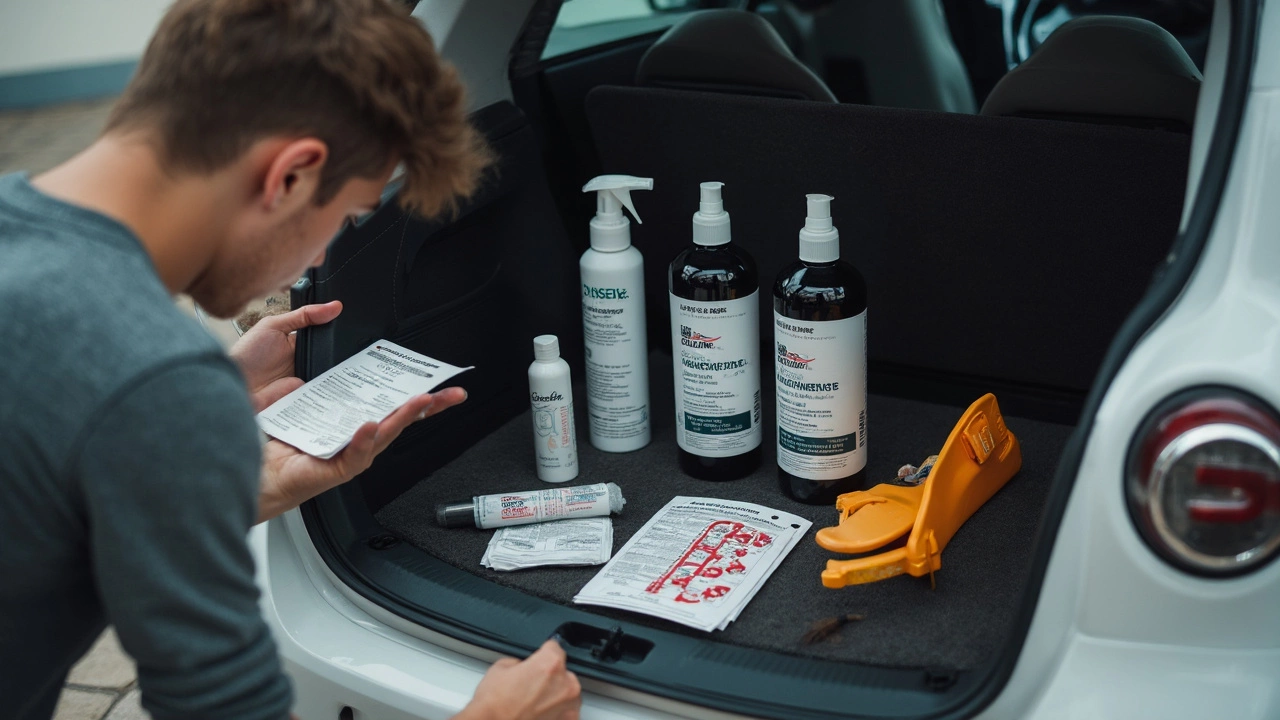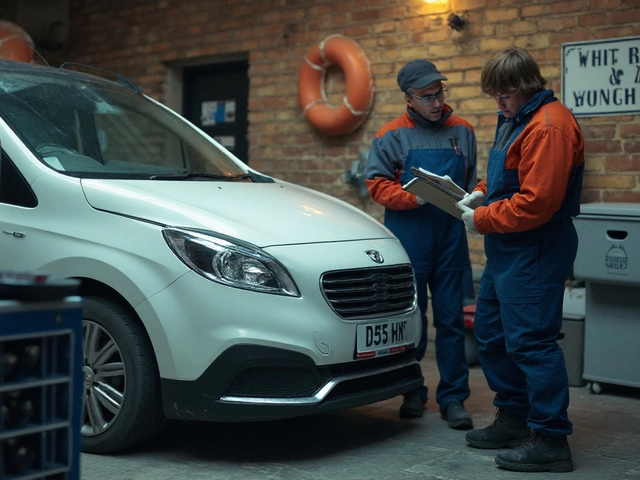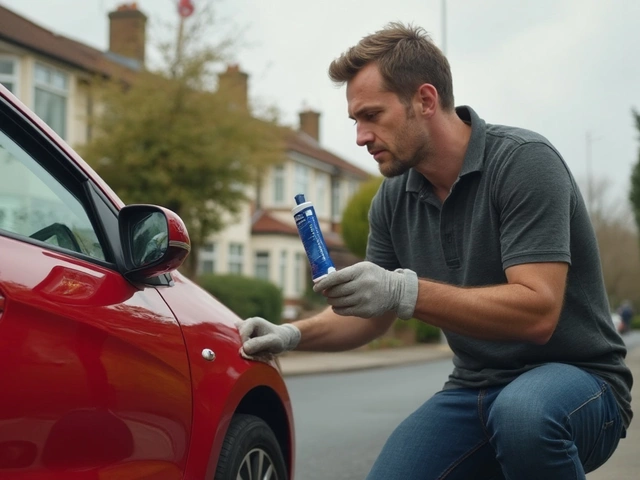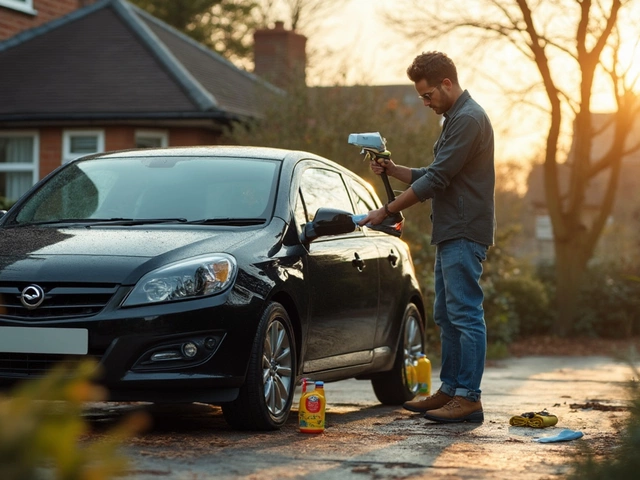Ever wonder if you need a big bank account to get a car detailing business off the ground? Most people are surprised by how affordable it can be—if you know what really matters. But be warned, there’s a big gap between clever spending and penny-pinching that’ll bite you later.
Let’s talk real numbers: you don’t need every shiny tool at the shop, but some gear you genuinely can’t skip. The absolute minimum for decent results is usually a starter detailing kit, a wet/dry vac, a pressure washer, microfiber towels, and a few chemicals (think soap, wax, tire cleaner). The kit alone can run from $120 to $300, but you’ll want to check if that price really covers decent quality or just a flashy box.
Here’s a quick tip: if you can, always sample smaller sizes first instead of blowing cash on gallons of unproven products. You’ll thank yourself later for not ending up with a garage full of half-used bottles that just collect dust.
- Essential Gear and Detailing Kits
- Startup Supplies and Consumables
- Licenses, Permits, and Insurance
- Hidden and Ongoing Expenses
- Smart Budgeting and Money-Saving Tips
Essential Gear and Detailing Kits
When it comes to starting a car detailing business, getting the right kit is the make-or-break move. The basics include way more than a bucket and a sponge. Your main tools will shape your results, your speed, and even your customer reviews. So, what does every beginner actually need in their arsenal?
Let’s break down the essential items you’ll use day in, day out:
- Microfiber towels – Forget old T-shirts. Microfiber picks up dirt without scratching, and you'll want at least 20 for starters. Expect to spend about $25 for a decent multi-pack.
- Buckets & Grit Guards – At least two buckets so you don’t wash with dirty water. Grit guards help keep tiny rocks from scratching the paint. Around $30 gets you set.
- Dual-action polisher – Hand-polishing eats up your time. A reliable entry-level polisher is roughly $90–$130 and makes a big difference in your results.
- Wet/dry vacuum – You’ll use this for every interior job. Budget models start at $50, but investing in a durable one ($120+) often pays off.
- Pressure washer – This is key for cleaning exteriors fast and thoroughly. Light-duty electric models go from $90 to $150. Gas models are pricier but rarely needed when you're starting out.
- Detail brushes – Get a few sizes for wheels, vents, and panel edges. Expect to pay $20–$30 for a starter set.
- Starter chemical kit – You need soap, wax, tire cleaner, window cleaner, and an all-purpose cleaner at the least. Small kits can cost as little as $60, but better brands or bigger bottles will bump that up fast.
Don’t just grab the cheapest detailing kits off Amazon. Cheap towels leave lint and swirl marks, and low-quality chemicals don’t clean as well (sometimes they even eat through paint or leave greasy residue). If you want to stay under $400 for gear, skip fancy gadgets and invest in solid basics.
For a clear snapshot, check out this starter gear breakdown:
| Item | Average Cost |
|---|---|
| Microfiber Towels (20 pack) | $25 |
| Buckets & Grit Guards | $30 |
| Dual-Action Polisher | $110 |
| Wet/Dry Vacuum | $120 |
| Pressure Washer | $120 |
| Brushes (set) | $25 |
| Chemical Kit | $80 |
Total up these essentials, and you're looking at around $510 if you pick quality but still stick to basics. Remember, you can start a car detailing business without going straight for premium, but don’t cut so many corners that your service suffers. Customers notice the details, and so should you.
Startup Supplies and Consumables
This is the stuff you burn through fast—the everyday essentials that vanish one car at a time. Think microfiber towels, wash mitts, buckets, spray bottles, applicator pads, and all those different cleaners. Every car detailing business eats through these like crazy, so it’s smart to get them in bulk when you can.
Let’s break down what you’ll need for the first month or two. Expect to spend at least $150 to $300 here if you want enough to get started with a few clients:
- Microfiber towels: You’ll want at least 20-30. Quality matters. Cheap towels leave lint and scratch paint.
- Wash mitts/sponges: Grab a few. Don’t cross-contaminate wheels and paint—use separate mitts.
- Buckets: Get two or three. The two-bucket method (one for washing, one for rinsing) helps you avoid scratches.
- Spray bottles: At least a set of 6. You’ll use these for different chemicals.
- Detailing brushes: Needed for interiors, wheels, and tight spots. Skip the dollar store packs—they shed bristles everywhere.
- Soaps and cleaners: Car wash soap, interior cleaner, glass cleaner, degreaser, and wheel cleaner. Try a few brands before buying gallons at a time.
- Wax/sealant: A small bottle gets you started. You don’t need pro-grade ceramic coatings on day one.
Here’s a quick look at what you might spend:
| Item | Estimated Cost (USD) |
|---|---|
| Microfiber Towels (30-pack) | $40 |
| Wash Mitts (2) | $12 |
| Buckets (3) | $18 |
| Spray Bottles (6) | $15 |
| Detailing Brushes (Set) | $25 |
| Soaps/Cleaners | $60 |
| Wax/Sealant | $30 |
One thing people don’t think about: Always keep a stash of nitrile or latex gloves. Detailing chemicals aren’t great for your skin, and you’ll go through these faster than you think. Add paper towels or disposable rags for windows and dirty jobs.
Don’t cheap out on supplies. If your detailing kits smear windows or scratch paint, you’ll lose clients before you even get started. Buying good quality in bulk (especially towels and soap) saves you from running out or using stuff that makes your work look amateur hour.

Licenses, Permits, and Insurance
Getting legal is honestly not the fun part, but you can’t ignore this stuff if you want to run a legit car detailing business. Trying to skip on paperwork is a shortcut to fines—or worse, someone shutting down your setup.
First up, check your city or county requirements. Most spots want you to have a business license, and that can run anywhere from $30 to $150 per year, depending on the area. If you plan to operate from home, make sure local rules don’t ban it—some neighborhoods are strict about business activity on residential lots. Thinking about mobile work? Double-check if you need a mobile vendor permit or extra documentation for traveling between jobs.
If you’re using water or dealing with chemicals, a wastewater disposal permit can be required. Skipping this is risky: local environmental agencies fine people who let dirty runoff go down storm drains. No exaggeration—some cities like San Diego hand out $1,000 fines for violations.
Now let’s talk insurance. Don’t brush this off as unnecessary. General liability insurance protects you if something goes wrong during a job, like damaging a customer’s car or slipping up with a chemical spill. Most new detailers pay around $350–$750 per year for basic coverage. If you have a van or trailer for mobile work, commercial vehicle insurance is a must—personal auto policies usually won’t cover business use.
Want an easy rundown? Here’s a quick checklist with typical price ranges:
- Business License: $30–$150/year
- Mobile Vendor Permit: $50–$200/year (if required)
- Wastewater/Environmental Permit: $0–$200/year
- General Liability Insurance: $350–$750/year
- Commercial Vehicle Insurance: $600–$2,000/year (varies a lot by location and driving history)
Don’t get tripped up by red tape—set aside time for this right at the start before you buy those first detailing kits or business cards. Getting your paperwork in order can save you some real headaches down the road.
Hidden and Ongoing Expenses
A lot of people forget the true costs don’t end once you’ve bought your car detailing kits and a fancy vacuum. The real sting? It comes with those sneaky, steady expenses you don’t always see coming. Even if you go mobile and skip the big shop rental, you’re still looking at a bunch of recurring bills that eat into your profits every month.
First, supplies burn out fast. You’ll need to restock microfiber towels, soaps, waxes, tire cleaners, and all the bits in your car detailing business arsenal. For a small, steady setup, plan on $40–$120 a month for consumables, especially if you’re keeping customers happy with quality results. Gloves, masks, and trash bags pile on, too—think of it as the hidden tax for keeping things pro and sanitary.
Next, wear and tear hits your gear hard. Pressure washers, shop vacs, and polishers don’t last forever. Even basic detailing kits need replacements. Budgeting at least $15–$50 a month for repairs or upgrades is smart—more if you go heavy on volume or use lower-end gear. No one wants to run late on a job because your polisher died halfway through.
Transport can punch your wallet, too. If you’re mobile, gas costs serious dough; a local operator might spend $100–$200 a month just on fuel, depending on how big your service area is. Don’t forget routine vehicle maintenance and maybe an extra insurance policy so you’re really covered.
Let’s not ignore admin overhead. If you take payments online or by card, expect processing fees, usually 2–3%. Some states make it a hassle and a cost to renew your business license yearly, sometimes around $50–$200. Insurance also isn’t optional—plan $35–$125 monthly. Ignoring this stuff leads to nasty surprises come tax time or after a fender-bender in a customer’s driveway.
| Ongoing Expense | Monthly Estimate (USD) |
|---|---|
| Consumable Supplies | $40 – $120 |
| Equipment Repair/Replacement | $15 – $50 |
| Fuel & Transport | $100 – $200 |
| Insurance | $35 – $125 |
| Business Admin (fees, permits) | $10 – $25 |
Staying on top of your real costs means you don't get blindsided and can actually figure out how much to charge your customers. It’s the difference between running a hobby and running a real car detailing business that stands out in your area and makes a profit.

Smart Budgeting and Money-Saving Tips
Spending money wisely when starting a car detailing business can make the difference between making profits or just breaking even. A lot of beginners overpay for gear they barely use, or fall for brands that charge more for the label than the quality. Know what you actually need—and what you can skip until you’re raking in steady cash.
First up, buy in bulk only for things you’ll use up quickly, like microfiber towels or basic soaps. Most shops sell bundles at a steep discount. For example, you can snag a 24-pack of decent towels for under $30, while single ones sometimes run over $3 each.
- Stick to all-purpose cleaners instead of buying a separate chemical for every use. A pro-grade bottle might clean everything from dashboards to rims.
- Check local suppliers before ordering everything online—sometimes shipping costs sneak up and eat your savings.
- Look for "open box" or gently used detailing machines and vacuums. Sites like Facebook Marketplace, Craigslist, and OfferUp are goldmines for $50 pressure washers and $25 shop vacs that still have years left in them.
- Don’t pay extra for kits loaded with ‘miracle products’ that don’t really deliver. Ask fellow detailers in your area about what actually works on cars in your climate.
Here's a simple comparison of common starter kit vs. DIY costs. Sometimes grabbing items separately lets you pick quality where it matters, and trim the junk.
| Item | Basic Kit Price | DIY Picked Price |
|---|---|---|
| Microfiber Towels (24-pack) | $35 (in kit) | $24 (bulk online) |
| Chemical Cleaners | $70 (in kit) | $45 (select essentials only) |
| Brushes & Applicators | $40 (in kit) | $25 (local auto shop) |
You don’t have to learn every tip the hard way. Pros are always talking about deal hunting and networking with other detailers. One well-known pro, Jimbo Balaam from the Auto Detailing Podcast, puts it best:
"If you can share bulk orders with other new businesses, you’ll both save cash and avoid leftover stock collecting dust. There’s a lot of power in the local detailing community."
Remember to track every dollar and every bottle: keeping a simple spreadsheet prevents bad surprises. And if you’re tossing out unused products or paying extra storage, you’re bleeding money. Smart budgeting in the early days sets you up for bigger profits down the road.




